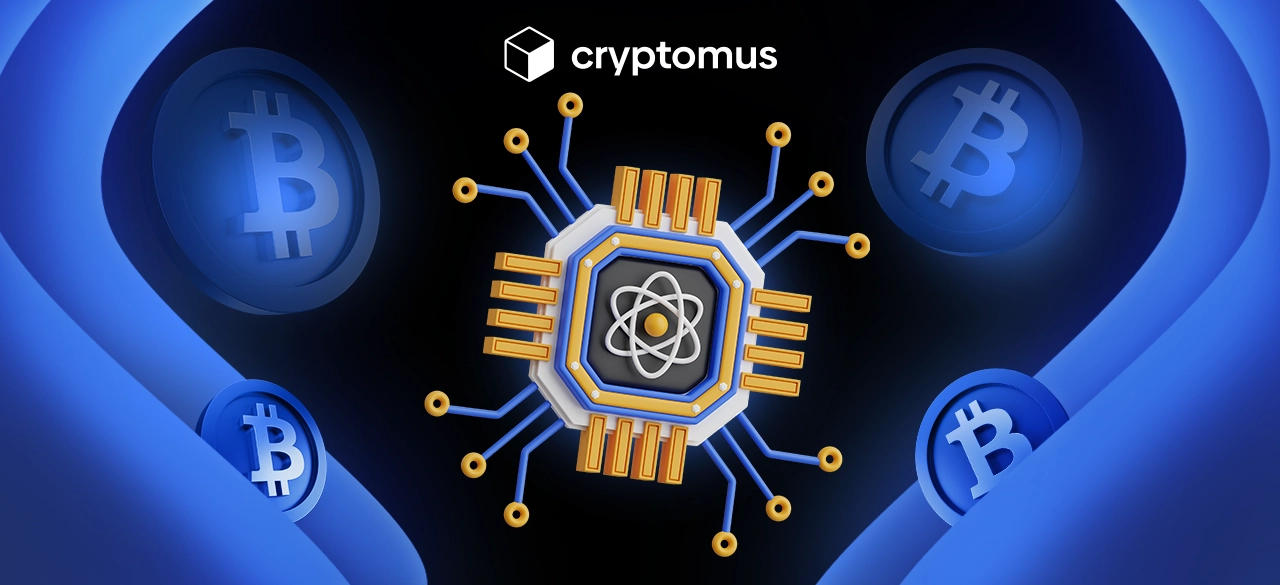
คอมพิวเตอร์ควอนตัมและคริปโตเคอร์เรนซี
สารบัญ
คอมพิวเตอร์ควอนตัมเป็นการเปลี่ยนแปลงครั้งใหญ่ของเทคโนโลยีการคำนวณ แตกต่างจากคอมพิวเตอร์แบบดั้งเดิมในแนวทางพื้นฐานในการประมวลผลข้อมูล คอมพิวเตอร์แบบดั้งเดิมใช้บิตเป็นหน่วยข้อมูลพื้นฐาน ซึ่งมีอยู่ในสองสถานะ: 0 หรือ 1 คอมพิวเตอร์ควอนตัมไม่เหมือนกับคอมพิวเตอร์แบบดั้งเดิม สามารถมีหลายสถานะได้พร้อมกัน ทำให้ช่องว่างด้านพลังการประมวลผลใหญ่จนคอมพิวเตอร์ทั่วไปไม่สามารถทำความเร็วการคำนวณนั้นได้
ตอนนี้ หากฉันบอกคุณว่ามีคนที่ประสบความสำเร็จในการรวมคอมพิวเตอร์ควอนตัมและคริปโต นั่นคือ คริปโตควอนตัมคอมพิวติ้ง คุณจะเชื่อหรือไม่?
นั่นคือสิ่งที่เราจะได้เห็นในบทความนี้ อย่ารอช้า มาดำดิ่งสู่หัวข้อที่น่าหลงใหลนี้กันเลย
บทบาทของการคำนวณควอนตัมในการกำหนดวิวัฒนาการของสกุลเงินดิจิทัล
ปฏิสัมพันธ์ระหว่างคอมพิวเตอร์ควอนตัมและคริปโตมีความสำคัญอย่างยิ่งในการกำหนดอนาคตของการเงินออนไลน์
เมื่อคอมพิวเตอร์ควอนตัมกลายเป็นสิ่งที่พบเห็นได้ทั่วไป ความสามารถของมันในการเปลี่ยนรากฐานด้านความปลอดภัยของสกุลเงินดิจิทัลจึงกลายเป็นข้อกังวลสำคัญ สิ่งนี้นำไปสู่การพัฒนาสกุลเงินดิจิทัลที่ทนต่อคอมพิวเตอร์ควอนตัม ซึ่งมีความจำเป็นในการทำให้เงินดิจิทัลปลอดภัย
คริปโตและการคำนวณควอนตัมรวมเอาสองด้านของเทคโนโลยีที่ก้าวล้ำ การถกเถียงเกี่ยวกับสกุลเงินดิจิทัลเทียบกับการคำนวณควอนตัมเน้นย้ำถึงความจำเป็นที่โลกเงินดิจิทัลต้องติดตามความก้าวหน้าของควอนตัมเพื่อให้มั่นใจในความปลอดภัยและความน่าเชื่อถือของเทคโนโลยีบล็อกเชน
ความร่วมมือนี้สัญญาว่าจะสร้างอนาคตการเงินออนไลน์ที่แข็งแกร่งและปลอดภัยในยุคของการคำนวณควอนตัม
การประเมินผลกระทบของคอมพิวเตอร์ควอนตัมต่อสกุลเงินดิจิทัล
ผลกระทบของสกุลเงินดิจิทัลคอมพิวเตอร์ควอนตัมต่อวงการคริปโตเป็นหัวข้อที่ได้รับความสนใจและความกังวลทั้งในภาคการเข้ารหัสและการเงิน ต่อไปนี้คือวิธีหลักที่คอมพิวเตอร์ควอนตัมอาจส่งผลกระทบต่อสกุลเงินดิจิทัล:
-
การทำลายอัลกอริทึมการเข้ารหัสปัจจุบัน: คอมพิวเตอร์ควอนตัมอาจสามารถทำลายอัลกอริทึมการเข้ารหัส เช่น Shor’s ซึ่งอาจทำให้เทคโนโลยีบล็อกเชนและความปลอดภัยของสกุลเงินดิจิทัลเสี่ยงต่อการโจมตีจากคอมพิวเตอร์แบบดั้งเดิม
-
ผลกระทบต่อความสมบูรณ์ของบล็อกเชน: อาจทำให้แฮชการเข้ารหัสและลายเซ็นดิจิทัลถูกคุกคาม เปิดโอกาสให้ผู้โจมตีสามารถแก้ไขธุรกรรมและยอดคงเหลือในบล็อกเชน ซึ่งอาจบ่อนทำลายความเชื่อมั่นในสกุลเงินดิจิทัล
-
การพัฒนาสกุลเงินดิจิทัลที่ทนต่อควอนตัม: สกุลเงินดิจิทัลที่ทนต่อควอนตัมหรือป้องกันควอนตัมกำลังถูกพัฒนาเพื่อต่อต้านภัยคุกคามที่อาจเกิดจากการคำนวณควอนตัม โดยใช้อัลกอริทึมการเข้ารหัสที่ปลอดภัย เช่น การเข้ารหัสแบบ lattice-based หรือ hash-based
-
เพิ่มความเร็วและประสิทธิภาพของธุรกรรม: คอมพิวเตอร์ควอนตัมสามารถยกระดับกระบวนการของสกุลเงินดิจิทัล เพิ่มความเร็วและประสิทธิภาพของธุรกรรม โดยเฉพาะสำหรับสัญญาอัจฉริยะที่ซับซ้อนและแอปพลิเคชันแบบกระจายศูนย์
อัลกอริทึมการเข้ารหัสที่ปลอดภัยต่อควอนตัม: การยกระดับความปลอดภัยของสกุลเงินดิจิทัล
ก้าวสำคัญในการปรับปรุงความปลอดภัยของธุรกรรมดิจิทัลได้เกิดขึ้นแล้ว ด้วยการแนะนำอัลกอริทึมการเข้ารหัสที่ปลอดภัยต่อควอนตัมเข้าสู่โลกสกุลเงินดิจิทัล
สกุลเงินดิจิทัลที่ปลอดภัยต่อควอนตัม
สกุลเงินดิจิทัลที่ปลอดภัยต่อควอนตัมใช้อัลกอริทึมที่ทนต่อควอนตัมสำหรับกระบวนการเข้ารหัส อัลกอริทึมเหล่านี้ได้รับการออกแบบมาให้ปลอดภัยทั้งต่อการโจมตีจากคอมพิวเตอร์แบบดั้งเดิมและคอมพิวเตอร์ควอนตัม ตัวอย่างเช่น การเข้ารหัสแบบ lattice-based, hash-based, code-based และ multivariate polynomial วิธีการเหล่านี้ในปัจจุบันเชื่อว่าต้านทานต่อการคำนวณที่คอมพิวเตอร์ควอนตัมเชี่ยวชาญ

วิธีที่สกุลเงินดิจิทัลปรับตัวต่อภัยคุกคามจากการคำนวณควอนตัม
ในการต่อสู้ระหว่างการคำนวณควอนตัมกับคริปโต โลกคริปโตไม่ได้หยุดนิ่ง แต่กำลังปรับตัวต่อภัยคุกคามเหล่านี้ผ่านหลายกลยุทธ์นวัตกรรม:
-
อัลกอริทึมที่ทนต่อควอนตัม: อัลกอริทึมการเข้ารหัสที่ทนต่อควอนตัม เช่น lattice-based และ hash-based กำลังถูกพัฒนาเพื่อตอบโต้ความสามารถในการคำนวณมหาศาลของคอมพิวเตอร์ควอนตัม
-
ระบบการเข้ารหัสแบบไฮบริด: ชุมชนคริปโตสนับสนุนระบบแบบผสมที่รวมอัลกอริทึมแบบดั้งเดิมและแบบทนต่อควอนตัมเพื่อการเปลี่ยนผ่านที่ราบรื่น
-
โปรโตคอลความปลอดภัยหลายชั้น: การยกระดับโปรโตคอลความปลอดภัยของบล็อกเชนและสกุลเงินดิจิทัลเกินกว่าการเข้ารหัสเพียงอย่างเดียว โดยรวมหลายชั้นเพื่อสร้างเกราะป้องกันเพิ่มเติมต่อวิธีการถอดรหัสแบบควอนตัม
-
การอัปเกรดเครือข่ายอย่างต่อเนื่อง: เครือข่ายสกุลเงินดิจิทัล เช่น Bitcoin และ Ethereum ถูกอัปเดตและปรับปรุงอย่างต่อเนื่องผ่านกลไกฉันทามติ รวมคุณสมบัติที่ทนต่อควอนตัมเพื่อรักษาความปลอดภัย
-
การกระจายกุญแจควอนตัม (QKD): Quantum Key Distribution (QKD) เป็นวิธีการแบบควอนตัมสำหรับการส่งข้อมูลที่ปลอดภัย ป้องกันไม่ให้คอมพิวเตอร์ควอนตัมดักจับและถอดรหัสข้อมูลโดยไม่ถูกตรวจพบ
อนาคตของสกุลเงินดิจิทัลในยุคการคำนวณควอนตัม
อนาคตของคอมพิวเตอร์ควอนตัมและสกุลเงินดิจิทัลเป็นหัวข้อของการคาดเดาและการวิจัยอย่างเข้มข้น เนื่องจากผลกระทบที่ลึกซึ้งของการคำนวณควอนตัมต่อการเข้ารหัส ซึ่งเป็นรากฐานของความปลอดภัยของสกุลเงินดิจิทัล
-
ภัยคุกคามควอนตัมต่อการเข้ารหัส: คริปโตควอนตัมอาจทำให้วิธีการเข้ารหัสแบบดั้งเดิม เช่น RSA และ ECC ถูกคุกคาม ซึ่งเป็นความเสี่ยงต่อความสมบูรณ์และความปลอดภัยของสกุลเงินดิจิทัลที่มีอยู่
-
การพัฒนาสกุลเงินดิจิทัลที่ทนต่อควอนตัม: สกุลเงินดิจิทัลทนควอนตัมกำลังถูกพัฒนาโดยใช้อัลกอริทึมการเข้ารหัสหลังควอนตัม ซึ่งเป็นการเปลี่ยนแปลงที่สำคัญเพื่อความอยู่รอดและความน่าเชื่อถือของเงินดิจิทัลในยุคควอนตัม
-
ผลกระทบต่อเทคโนโลยีบล็อกเชน: การปรับปรุงประสิทธิภาพและการทำให้ธุรกรรมเร็วขึ้นอาจกลายเป็นภัยคุกคามต่อโครงสร้างบล็อกเชนปัจจุบันหากไม่ได้เตรียมการอย่างเหมาะสม
-
การคำนวณควอนตัมเป็นดาบสองคม: คอมพิวเตอร์เหล่านี้นำเสนอทั้งความท้าทายและโซลูชันที่เป็นไปได้ เช่น QKD ซึ่งสามารถเพิ่มความปลอดภัยในการทำธุรกรรมโดยการสร้างช่องทางการสื่อสารที่ไม่สามารถแฮ็กได้สำหรับการโอนสกุลเงินดิจิทัล
อนาคตของคริปโตและการคำนวณควอนตัมเต็มไปด้วยความหวัง การรวมพลังของเทคโนโลยีเหล่านี้จะพลิกโฉมชีวิตและโลกของเรา เนื่องจากสกุลเงินดิจิทัลควอนตัมกำลังถูกสำรวจและพัฒนาแล้ว
เรามาถึงตอนท้ายของบทความนี้เกี่ยวกับสกุลเงินดิจิทัลและการคำนวณควอนตัม หวังว่าคุณจะพบว่ามีประโยชน์ อย่าลังเลที่จะทิ้งความคิดเห็นด้านล่างและบอกเราว่าคุณคาดหวังอะไรสำหรับอนาคตของคริปโตควอนตัมคอมพิวติ้ง
ทำให้การเดินทางสู่ Crypto ของคุณง่ายขึ้น
อยากเก็บ ส่ง รับ เดิมพัน หรือซื้อขายคริปโทเคอร์เรนซีใช่ไหม? Cryptomus ทำได้ทุกอย่าง — สมัครและจัดการกองทุนคริปโทเคอร์เรนซีของคุณด้วยเครื่องมืออันแสนสะดวกของเรา
เริ่มต้นใช้งาน



